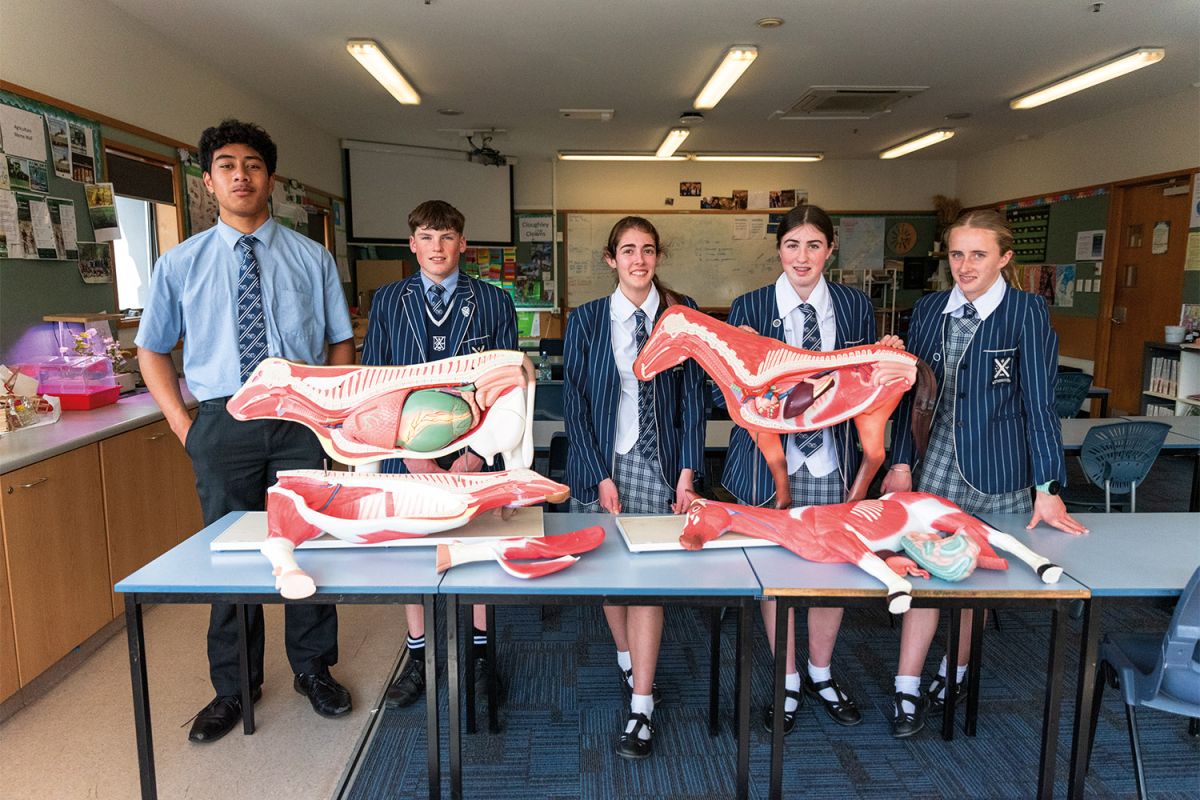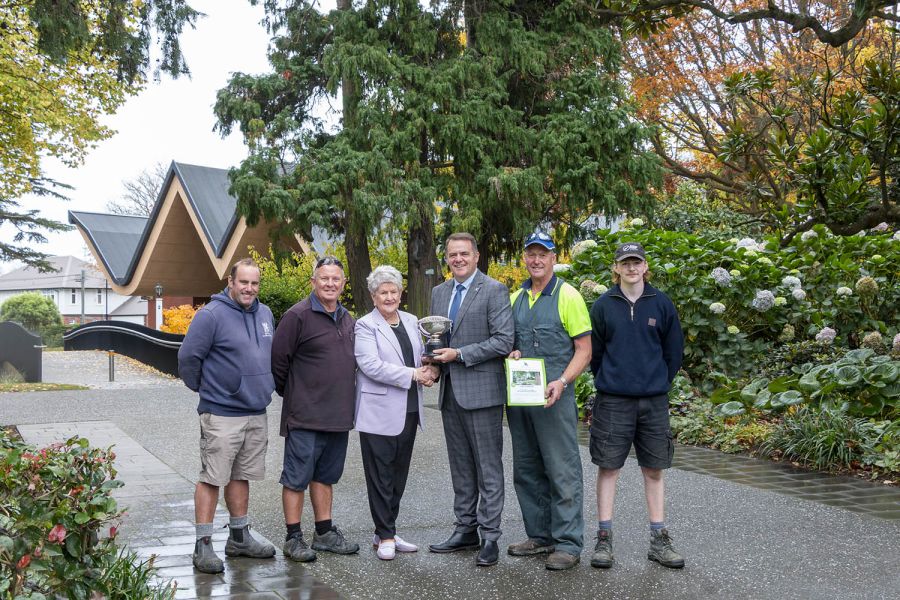Agriculture goes from strength to strength
30 November 2023

The exciting opportunities for young people entering the primary sector are reflected in the large numbers of students currently taking Agriscience and Agribusiness classes in the Secondary School, says Teacher in Charge of Agriculture, Natasha Cloughley, who works alongside teachers, Liam Smith and Steve Hamlin.
“We have 12 Agriscience and Agribusiness classes across the year groups, with many students attracted by the wide range of career and study options available to them. Some of our former students have gone into veterinary school, food technology, animal or plant research, engineering, marketing, finance, have become farm consultants, fertiliser reps, and more.”
Throughout its long history, St Andrew’s has been closely aligned with the rural sector and many current students come from farming backgrounds. However, they are not the only students taking Agriculture subjects, says Natasha. “Our students have a great mix of backgrounds, from all sizes of farms, to lifestyle blocks, and true city kids. We have a good gender balance too, with a 60/40 mix of boys and girls on average across the classes.”
The Agriculture Department has produced a Kaupapa Mātāmua, which sets out its key goals, and provides a guideline and study theme for each year group.
It all starts with Discovery for Year 9 Agriscience students, who are provided with an introduction to the New Zealand primary industries with a focus on animal breeds and uses, agritech, farm management, and bees. The Year 10 Agriscience classes work to the Foundation theme, looking at soil, plant and animal science, along with farm management, and meat, milk, and wool product development. “The students get to create their own food product and come up with a marketing campaign for it. They also visit the National Trade Academy where they do eight practical modules,” says Natasha.
In Year 11 under the theme Principles, Agriscience students learn a number of practical skills with their studies focused on the interaction of soils, plants, and animals to produce quality products which consider sustainability. When students reach Year 12 (Details) and Year 13 (Systems) they can choose between Agriscience and Agribusiness, or take both subjects. Reproduction and livestock growth is a key component of the Year 12 Agriscience course, with students enjoying the opportunity to incubate, hatch, and raise chickens in their classroom. In Year 13, students look at high production primary products, and investigate how to produce a desirable product that meets consumer demands but is ethically and environmentally sustainable.
Agribusiness students in Year 12 look at growing value in New Zealand primary products through innovation, science, technology, management, and marketing. There is a similar focus in the subject in Year 13, with students looking specifically at the honey industry, dairy industry, and Agribusiness sustainability. “All Year 12 and 13 classes enjoy regular field trips to large primary producers and agricultural businesses, and complete class-based practical activities which reinforce the learning,” says Natasha.
As well as preparing students for study and careers in the primary sector, there are some fun events initiated each year by the Agriculture Department. “We hold Gumboot Day, in association with the Boarders’ Assembly, to raise money for I Am Hope; the student-voted Ag Awards; and the StAC Ag Show, which is our main event at the end of Term 3. These events are a great way to bring the wider St Andrew’s community in closer contact with the Agriculture Department and St Andrew’s rural legacy.”
Related Posts


